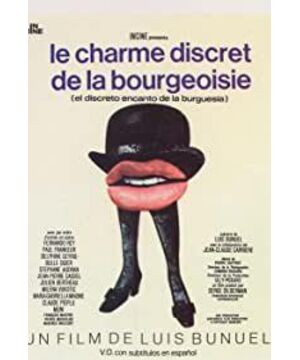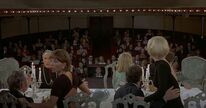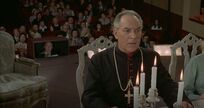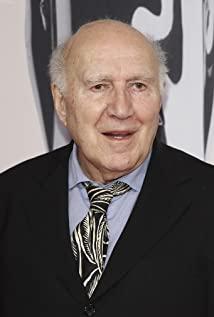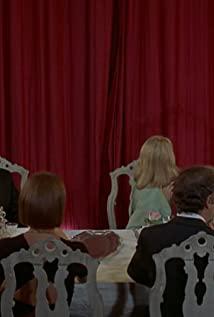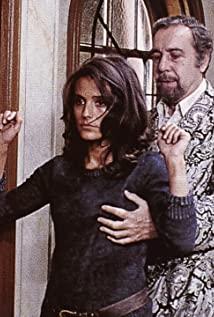The so-called monotonous path under the blue sky and white clouds can also be said to be formed by the mutual extrusion between the inner desire and the general pressure of the external world, so the meaningless strolling with the heart on the grass and the road becomes a kind of sadness. ceremony. Similarly, a dinner party that refrains from desire and follows etiquette belongs to the same kind of ceremony. Just as killing a calf and cutting it into pieces and burning it means offering sacrifices to the Lord, there is often another system of metaphors about the real world implicit in the ritual. If the ritual cannot be performed perfectly, the believer will live long in the anxiety and unease caused by the fact that the metaphor system is thwarted by reality. Of course, the six people in the film did not actively seek the pacification of faith, but were thrown into meaningless rituals (thrown by what? Simple desires? Or more out of some helplessness?), and then rituals They have almost become the meaning of their lives. They probably no longer need more wealth and power, but just want to maintain their existing sense of order through rituals.
And the only road is often narrow, and the sense of order is nothing but a temporary balance that goes back and forth. The banquet is interrupted again and again and restarted again and again as if on a deaf ear to the obstruction, leading us to gradually believe that the power that drives their lives is nothing but a meaningless obsession - really meaningless? ——In fact, everyone lives with obsessions every day, but we only put people who are identified as mentally ill into "prisons". Is it because those people (including the six in the film) have different "wants and needs" than most people? In the struggle to maintain their own sense of order, the "bourgeoisie" in the film is constantly being defeated. Like a dream, the similar process repeats the confrontation of two forces: obsession and censorship.
The film's narrative itself is like a dream: first, walking along the road (implying a sense of belonging to order?) has become an obsession, and people reveal their desire to pursue. Projected into reality, several people keep agreeing to eat together, but they are destined to be interrupted by sudden events that make their desires and secret lives public. Meetings delayed by lust, interrupted by censors and arrests, etc., all together indicate that desire is hidden in some form in graceful order.
Dreams are expressions of desire, and nightmares are no exception. In the dream, the three gentlemen each experienced extreme situations. It seems that the violation of the sense of order betrays the original intention of desire, but this is actually a reflection of another force. As mentioned above, the secret confrontation between the two forces, one points to the disintegration of freedom and order, to the evil thoughts and indulgence behind the blue sky and white clouds and fields, and the other points to the road, as well as various ceremonies and etiquette. In daily life, the latter seems to be a rebellion against the former, but in fact it is a systematic disguise of the whole society; in dreams, the former still has to rely on the latter to appear, and through the struggle with the latter, it is revealed that "the disguise is nothing more than a disguise". exists as a disguise".
Take the example of the three ladies drinking tea—neither tea, nor coffee, milk, or even water—which only leads to a somber story of the murder of a father, told politely. Among them, the reality (not getting what you want) and the dream (killing your father) point to a common theme - order is disrupted. Against the background of the latter (leaving the ears of the three ladies raped?), the sense of absence directly evokes an atmosphere of embarrassment, and the three women use their silence to cover up their serious lack of control. That said, the father-killing story provides a wonderful satire on the good manners of the ladies. Another example is the dream of the ambassador shooting and killing the officer, a normal scene that gradually spirals out of control and becomes a nightmare, a situation everyone is very familiar with, and this is the process in which the sense of order is gradually disintegrated by hidden and invisible desires (in In the dream, the ambassador may just be a "stand-in" or "temporary carrier" of the dreamer himself or some desire).
The most extreme example of irony comes from the dream that exposed the eating ritual to the stage. Just like a superstition that belongs only to oneself is seen through by others, or one's own nakedness is stared at by the public, a burst of blatant ridicule brings the public (censorship) to the greatest degree of ritual (also a kind of obsession, revealing privilege and desire). humiliation. This humiliation comes from both the real public (others) and the public in six people's minds (i.e. the censorship constructed by society in their minds).
In the film, what makes the formation of reality and dream more deeply involved is that the film narrative always provides a relatively strong sense of reality. That is, when a dream wakes up, we know that the story just now was a dream—or not, just because the dream has never been woken up. Of course, as mentioned above, the awakening of a dream is often accompanied by the loss of control of the situation, but the "bourgeois" obsession in the film (shaped by the director) is quite powerful - when a dream wakes up, the sense of crisis it brings can be very powerful. Nested in another dream. This bizarre narrative structure seems to imply that our dreams have never been awake. Just like the road on the field seems to have no beginning and no end, including six people, we may all live in a "some kind of" obsession for a long time, from the beginning to the end.
View more about The Discreet Charm of the Bourgeoisie reviews


